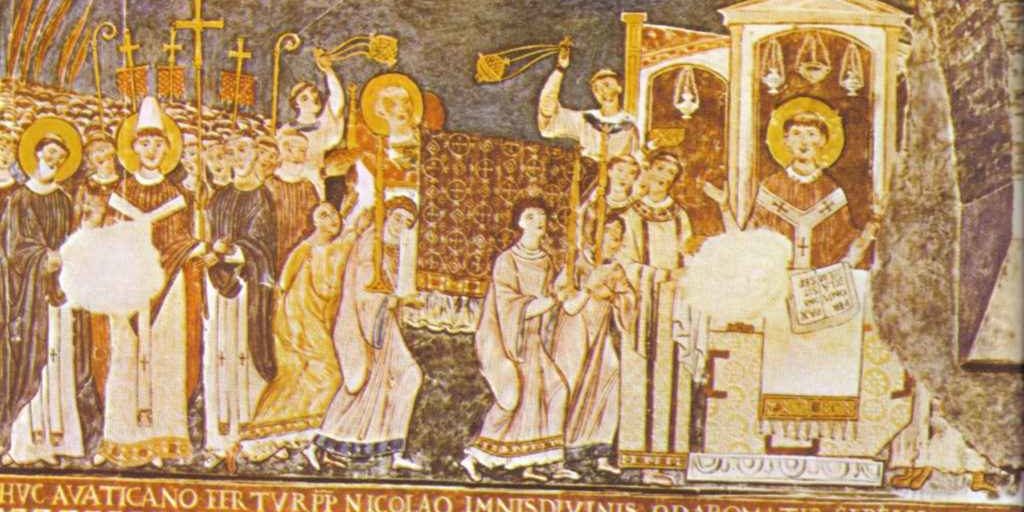
Apostolic Fathers Every Christian Should Know: Clement of Rome
This is the third of six articles by Kenneth Berding focused on Apostolic Fathers every Christian should know. The Apostolic Fathers are the authors of the earliest Christian writings after the period of the Apostles. The writings span the end of the first century until the middle of the second. Kenneth Berding (Ph.D., Westminster Theological Seminary) is professor of New Testament at Biola University and the director of Bible Fluency: Sing It, See It, Study It.
focused on Apostolic Fathers every Christian should know. The Apostolic Fathers are the authors of the earliest Christian writings after the period of the Apostles. The writings span the end of the first century until the middle of the second. Kenneth Berding (Ph.D., Westminster Theological Seminary) is professor of New Testament at Biola University and the director of Bible Fluency: Sing It, See It, Study It.
Here are seven things you should know about Clement of Rome:
1. The elders in Rome wrote a letter to the church in Corinth around A.D. 95 because some of the younger members in Corinth had revolted against the established Christian leaders. “Clement” was probably one of the Roman leaders (or perhaps their scribe). Still, the letter was written with the authority of “us” (a group of elders in Rome), not “me” (Clement alone). Beyond this, we know very little about Clement the person.[1]
2. These leaders sought to persuade the Corinthians to regain unity. They didn’t try to wield authority from Rome, and at this point in church history, they couldn’t even if they wanted to. In other words, they didn’t tell the Corinthians what to do; they sought to persuade the Corinthians to do the right thing, which was to strive for unity. But how did they do it?
3. Persuasive tactic #1: an appeal to negative examples of envy and fighting from the far past (Cain, Esau, Saul) and positive examples from the more recent past (Peter, Paul). Actually, the use of positive types was one of the primary means of persuasion in this letter. We encounter references to Noah, Jonah, Abraham, Lot, Rahab, Elijah, Elisha, Ezekiel, Job, Moses, Esther, and others.
4. Persuasive tactic #2: an appeal to the natural order. The Christian leaders in Rome pointed out the way the stars in the sky move in agreement, the regularity of the seasons, the seas and the winds, and appealed to other such examples to argue that there should be harmony in the church.
5. Persuasive tactic #3: an appeal to the teaching that had been passed down from the apostles. They argued that since Jesus had appointed apostles, and that the apostles had appointed leaders in the church, some of which were still in Corinth, then the young usurpers ought to stop their rebellion and submit to their God-appointed leaders.
6. Persuasive tactic #4: an appeal to the authority of Scripture. We encounter large quotations of passages from the Psalms, Job, and Proverbs.
7. Persuasive tactic #5: an appeal to the Apostle Paul’s own warnings written forty years previously in 1 Corinthians. Since Paul had warned them about schisms (a Peter-group, an Apollos-group, a Paul-group, and an only-Jesus-group), contemporary Corinthians were foolish to fall into the same folly again.
For more information about the Apostolic Fathers, see Kenneth Berding’s easy-to-read narrative introduction (story form), The Apostolic Fathers: A Narrative Introduction.
Endnotes
[1] Eusebius in Church History 4.23.11 refers to the author of this letter as “Clement” (but also claims that he was the third bishop of Rome, even though a monarchial bishopric did not yet seem to have been in place in Rome at this time). Hermas Vision 2.4.3, in light of its Roman provenance and early date, may also mention the same person: “Then Clement will send it [‘two little books’ from Hermas] to the cities beyond, since that is his responsibility.” It is unlikely that the same primary author who wrote 1 Clement also wrote the document we know as 2 Clement in our collections of the Apostolic Fathers. The difference between the two documents is significant.

